The tiny German town fighting back against neo-Nazis
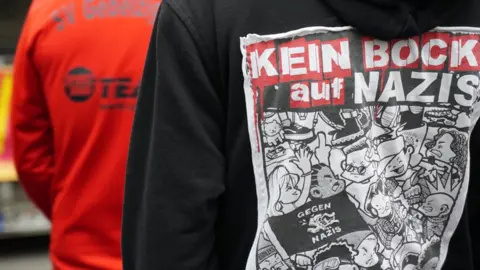 BBC
BBCEva Hauptfleisch returned to her parents' old house last month in the tiny town of Ostritz, in Germany's east, to join a resistance effort against neo-Nazis.
She was not alone.
Some 3,000 supporters turned out to oppose a Shield and Sword (SS) festival taking place in a hotel on the outskirts of the town, metres from the Polish border.
"Why Ostritz?" a journalist asked Thorsten Heise, the head of the extreme-right National Democratic Party (NPD) in the nearby State of Thuringia, and one of the organisers of the neo-Nazi event.
"Why not?" he responded. "There's not enough going on in Saxony. We're making politics more lively."
Support for far-right parties has blossomed here. In the 2017 federal election more than 30% of people in this district voted for the far-right Alternative for Germany party (AfD).
But many townspeople and their supporters are determined not to let Ostritz become the poster-town for the extreme right.
East's far-right surge
Ostritz, population 2,400, lies in Saxony, a state that has become a cradle for far-right ideas in Germany.
It was once part of East Germany, and many people here are still affected by the changes that followed the collapse of the Soviet Union in 1989.
When the factories closed, thousands left for the West - including Eva Hauptfleisch's parents, who fled to Frankfurt, where she was later born.
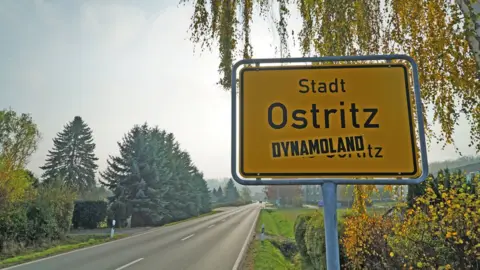
Many of those who stayed lost their livelihoods, as their new compatriots from the west took over businesses and bought houses. Twenty-eight years later, many former East Germans are entering retirement on the poverty line.
Angela Merkel's decision to welcome one million refugees to Germany in 2015 ignited fears in the east of of further losses at their expense.
The rally at the end of October was the second time this year that Eva Hauptfleisch returned to Ostritz to protest.
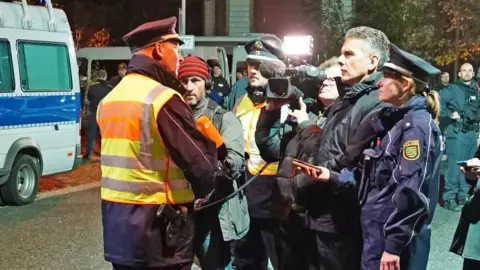
She and many others were here in April too to challenge the first neo-Nazi event organised by the NPD in their town.
"This town was sleeping," she says.
"Many people are depressed because they lost their work and they didn't have the chance to go somewhere else."
Yet the return of the far right has jolted Ostritz awake.

The far right in eastern Germany
- The neo-Nazi National Democratic Party (NPD) was elected to Saxony's state parliament in 2004 and 2009
- Its support base halved as the far-right Alternative for Germany (AfD) party made electoral gains
- AfD won 13% of the vote in the 2017 German elections, winning 92 seats and becoming the biggest party in opposition
- Support for AfD in the east is on average double its size in the west, but the party is now represented in all 16 states
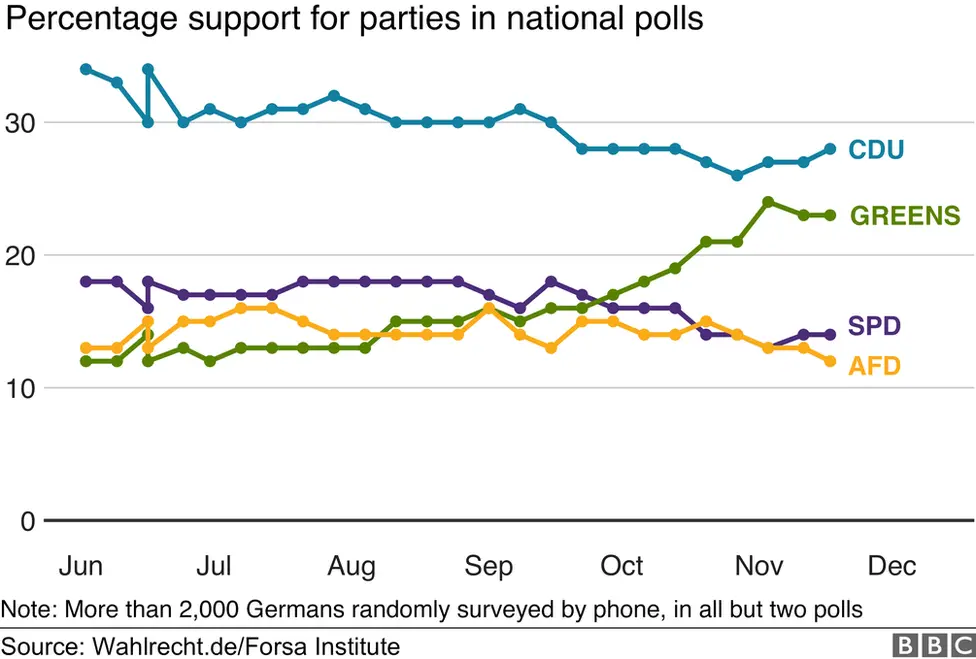

It is the weekend of the neo-Nazi festival, and the cobbled market square is filled with young families. A procession in rainbow colours, led by a man in leopard print, dances through the streets.
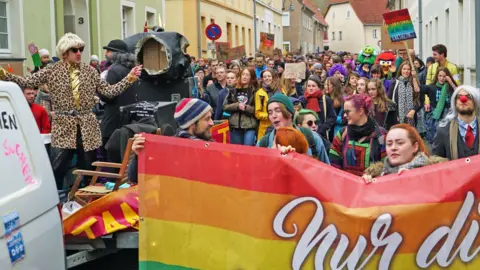
"We have to act now to preserve our valued democratic system, which is being jeopardised by neo-Nazis, far-right extremists and their assistants within our state parliaments and within the government," Michael Schlitt, the organiser of the peace festival, tells the crowd.
"We must not voluntarily grant them any space - not one single metre."
Across town, hundreds of armed police surround the neo-Nazi festival in the paint-splattered Hotel Neisseblick.
Inside, young men and women browse merchandise stands selling CDs by popular "hatecore" bands, whose lyrics invoke images of a war-torn Germany defended by patriotic men.

T-shirts bear slogans with barely concealed Nazi messages.
Tattoos of banned symbols, such as the swastika, are covered up with tape.
'We have woken up'
Hans-Peter Fischer, the owner of the hotel, says he is happy the neo-Nazis have returned to Ostritz as their festival brings in revenue.
"This was the only way to make sales here," he says, pointing out that he did not receive any compensation when his property was damaged in a flood.
Four similar events are planned at the hotel in 2019.
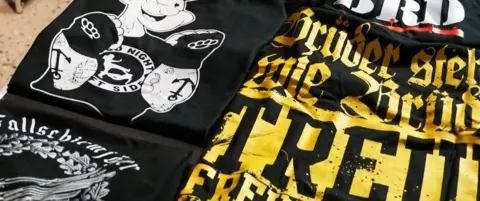
But the village will oppose them, vows Ostritz mayor Marion Prange.
One evening, she joins the townspeople as they light candles and encircle the square, singing in harmony, while police look on.
"The job is not done, but in this short period of time we have learned a lot that we can pass on to other communities," she says.
"We have shown that there are limits. We have woken up."
Additional reporting: Tobias Wolf
